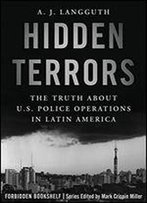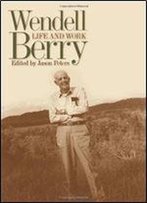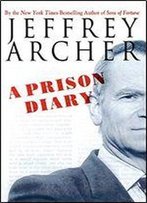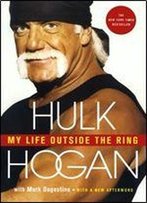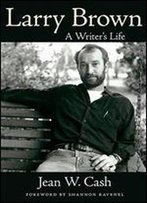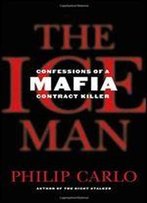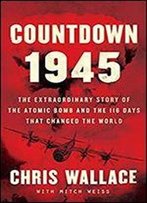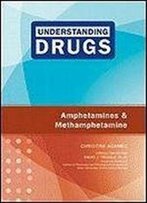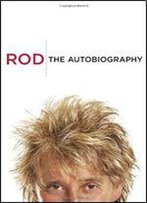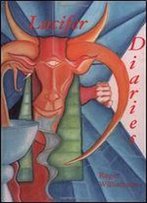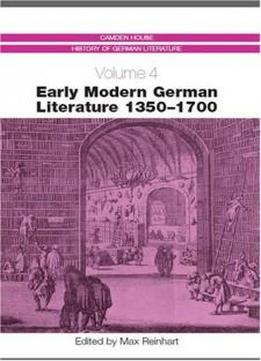
Early Modern German Literature 1350-1700 (camden House History Of German Literature)
by Max Reinhart /
2004 / English / PDF
10.7 MB Download
Early Modern German Literature provides an overview of major
literary figures and works, socio-historical contexts,
philosophical backgrounds, and cultural trends during the 350 years
between the first flowering of northern humanism around 1350 and
the rise of a distinctly middle-class, anti-classical aesthetics
around 1700. Recent scholarship has significantly revised many
traditional assumptions about the literature of this period,
starting with a reassessment of the canon. The notion of
"literature" has expanded to include a much wider range of texts
than before, such as broadsheets, illustrated books, emblem books,
travelogues, demonological treatises, and letters. Greater
attention to the cultural and social phenomena that affect literary
production has led to hitherto neglected areas of research,
including the culture of learning and learnedness; the idea of
authorship; the relationship between the intellectual elite and the
state and other political authorities and institutions; the
development of the family; gender dichotomy; and the early
formation of an educated, urban middle class. In an introduction
and twenty-seven essays on specific but broadly-based topics of
seminal importance to the period, written by leading specialists
from North America, the United Kingdom, and Germany, this
pathbreaking volume reflects this state-of-the-art research.
Early Modern German Literature provides an overview of major
literary figures and works, socio-historical contexts,
philosophical backgrounds, and cultural trends during the 350 years
between the first flowering of northern humanism around 1350 and
the rise of a distinctly middle-class, anti-classical aesthetics
around 1700. Recent scholarship has significantly revised many
traditional assumptions about the literature of this period,
starting with a reassessment of the canon. The notion of
"literature" has expanded to include a much wider range of texts
than before, such as broadsheets, illustrated books, emblem books,
travelogues, demonological treatises, and letters. Greater
attention to the cultural and social phenomena that affect literary
production has led to hitherto neglected areas of research,
including the culture of learning and learnedness; the idea of
authorship; the relationship between the intellectual elite and the
state and other political authorities and institutions; the
development of the family; gender dichotomy; and the early
formation of an educated, urban middle class. In an introduction
and twenty-seven essays on specific but broadly-based topics of
seminal importance to the period, written by leading specialists
from North America, the United Kingdom, and Germany, this
pathbreaking volume reflects this state-of-the-art research.
